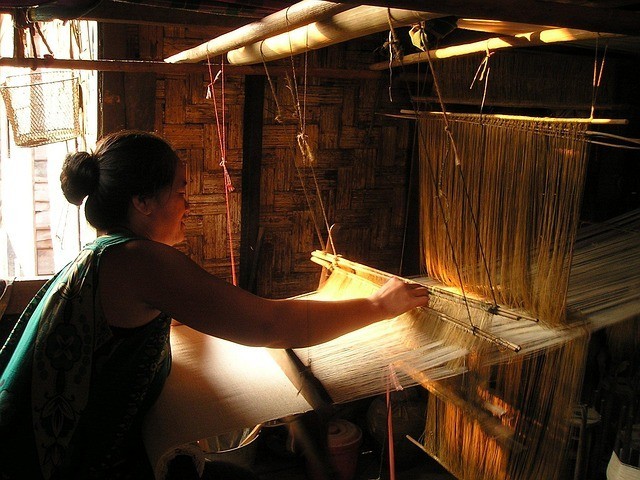views
The Crumbling Safety Net of Filipino Families
Filipino culture has long prided itself on the tradition of pag-aaruga sa matanda—caring for elders as a sacred family duty. Yet, beneath this idealized image lies a growing crisis. While Japan pioneers robotic caregivers and Sweden designs elder-friendly cities, the Philippines faces a demographic time bomb: a rapidly aging population colliding with weakening family support systems and inadequate government policies. The cultural expectation of utang na loob—the moral debt to care for one’s parents—is clashing with modern economic realities. Overseas migration, urbanization, and financial strain are eroding the traditional family safety net, leaving millions of Filipino seniors at risk of poverty, neglect, and isolation.
A Silver Tsunami with No Lifeguards
By 2050, the Philippines will have 23.3 million seniors—equivalent to the entire population of Taiwan today (PSA, 2023; World Bank, 2022). Unlike its ASEAN neighbors, which are preparing for aging populations with policy reforms and social safety nets, the Philippines remains alarmingly unprepared. Thailand and Vietnam are investing in elder care infrastructure, while Singapore leverages its wealth to support seniors. Meanwhile, the Philippines—with the fastest-growing elderly population in ASEAN (3.5% annually)—lags behind in policy, healthcare, and pension systems. Without urgent intervention, millions of Filipino elders will face their final years in poverty, abandoned by both family and state.
The Data: A Looming Crisis in Numbers
ASEAN'S SILVER TSUNAMI: PHILIPPINES VS. NEIGHBORS
| Country |
% Population 65+ (2023) |
Projected % 65+ (2050) | Senior Growth Rate (2023-2050) |
| Philippines | 7.5% | 18.4% | 3.5% annually (Fastest) |
| Thailand | 13.5% | 30.1% | 2.8% |
| Vietnam | 8.3% | 20.9% | 2.9% |
| Singapore | 18.4% | 33.5% | 2.3% |
| Indonesia | 6.6% | 14.8% | 2.5% |
Global Aging Snapshots:
- Global: 1 in 6 people will be over 65 by 2050 (UN, 2023).
- Japan: Super-aged society- 30% seniors, high-tech solutions (UN, 2023)
- Sweden: Universal elder care, but 32% tax rates (OECD, 2021)
- Philippines: The UN projects 23.3 million Filipino seniors by 2050-equivalent to the entire population of Taiwan today (PSA Census (2023); Worldbank (2022).
This crisis is not distant—by 2030, 1 in 10 Filipinos will be over 60, straining an already fragile healthcare and pension system.
AGING POPULATION CRISIS IN 4 KEY REGIONS
| Country | % 65+ (2023) | % 65+ (2050) | Senior Growth Rate | Key Stat Highlight |
| Philippines | 8% | 18% | 3.5% (fastest) | 23.3M seniors by 2050 |
| Japan | 30% | 38% | 1.1% | 1 in 3 people elderly |
| Sweden | 20% | 25% | .09% | 98% get state elder care |
| Global | 10% | 16% | 2.1% | 1.5B seniors worldwide by 2050 |
Challenges: Why the Philippines is Unprepared
Challenges: Why the Philippines is Unprepared
1. The Collapse of the Family Care System
Filipino families have historically been the primary caregivers, but economic pressures are breaking this tradition. 10 million OFWs live abroad, leaving aging parents behind (PSA, 2023). Urbanization forces younger generations into cities, while high living costs make elder care unaffordable for many.
2. Weak Government Safety Nets
> Pension Gaps: Only 20% of Filipino seniors receive pensions (World Bank, 2022). The Social Security System (SSS) and Government Service Insurance System (GSIS) cover only formal workers, leaving informal sector elders (farmers, vendors) with nothing.
-
-
> Healthcare Shortages: Geriatric care is underfunded. Public hospitals lack specialists, and PhilHealth coverage for seniors remains insufficient (DOH, 2023).
-
3. Cultural Shifts vs. Policy Stagnation
The "utang na loob" expectation is fading as younger Filipinos struggle financially. Yet, the government has no comprehensive national elder care strategy, unlike Thailand’s Elderly Fund or Singapore’s Central Provident Fund.
Present Policy vs. Population Needs
While Japan and Sweden invest heavily in elder care, the Philippines relies on token policies:
- > Expanded Senior Citizens Act (2010): Discounts on medicines and services, but no direct financial aid.
> Senior Citizen Pension: A P500 monthly stipend—far below the poverty line (DSWD, 2023).
> No Long-Term Care Law: Unlike South Korea’s Long-Term Care Insurance, the Philippines has no system for bedridden or disabled elders.
Result: Millions of seniors work into their 70s, beg, or rely on erratic family support.
Recommendation: A Three-Pronged Solution
-
1. Universal Basic Pension
-
-
> Expand the senior pension to at least P1,500/month (adjusted for inflation) and include informal workers.
- > Funded by increased sin taxes and reallocated pork barrel funds (World Bank, 2022)
-
- 2. Elder Care Infrastructure
-
- > Mandate geriatric wards in provincial hospitals (modeled after Thailand’s elder care clinics).
- > Subsidize home care programs to support families, reducing abandonment rates.
- > Mandate geriatric wards in provincial hospitals (modeled after Thailand’s elder care clinics).
-
-
-
3. OFW Elder Protection Fund
-
Require OFWs to contribute to a mandatory elder care fund, ensuring their parents receive support even if they work abroad.
Conclusion: A Crisis We Can No Longer Ignore
The data is clear: the Philippines is hurtling toward an elder care catastrophe.
While other nations adapt, the country remains stuck in outdated policies and cultural nostalgia. Without urgent reform, millions of Filipino seniors will die poor, sick, and alone—a moral failure for a nation that prides itself on family values.
Insight from Sources
International models prove solutions exist—Japan’s robotics, Sweden’s universal care, Thailand’s pension reforms—but the Philippines lacks political will. The World Bank (2022) warns that delaying action will quadruple elder poverty by 2050.
Author’s Insight: A Call for Immediate Action
The solution requires breaking the cycle of reliance on family care alone. A national elder care fund, stronger pensions, and community-based support systems must be prioritized. If Japan can build robot caregivers, the Philippines can at least ensure no parent dies abandoned. The time to act is now—before the silver tsunami drowns us all.
*** Authors Note & Research Statement:
© 2025 by Mariza L. Lendez. All rights reserved. www.chikicha.com
This article "Your Parents Will Die Poor and Alone: The Filipino Elder Crisis No One Wants To See" is forms part of my dissertation. All materials herein are protected by copyright and academic intellectual property laws. No part of this work may be reproduced, published, or distributed in whole or in part without express written permission from the author, except for academic citation or fair use with proper attribution. Based on verified data, peer-reviewed literature, and insights from national and global agencies and with the help of AI for deep research.
Citation Format
Lendez, Mariza (2025). [Your Parents Will Die Poor and Alone: The Filipino Elder Crisis No One Wants To See] In "Designing a Purpose-Driven Retirement Model Based on the IKIGAI Philosophy" (unpublished dissertation). Philippine Women's University.
Sources:
1. Cabigon, J. (2023). Projected population of the Philippines. Philippine Statistics Authority.
https://psa.gov.ph/statistics/census/projected-population
2. Cabigon, J. (2023). Philippine census data. Philippine Statistics Authority.
https://psa.gov.ph/statistics/census
3. Government of Japan. (2023). Annual report on the aging society. Cabinet Office.
https://www8.cao.go.jp/kourei/english/annualreport/2023.pdf
4. OECD. (2021). Health at a glance: Japan. Organisation for Economic Co-operation and Development.
https://www.oecd.org/japan/health-at-a-glance-Japan-EN.pdf
5. OECD. (2021). Sweden: Country profile. Organisation for Economic Co-operation and Development.
https://www.oecd.org/sweden/47894997.pdf
6. OECD. (2021). OECD economic surveys: Sweden. Organisation for Economic Co-operation and Development.
https://www.oecd.org/en/countries/sweden.html
7. United Nations. (2023). World population prospects. Department of Economic and Social Affairs.
https://population.un.org/wpp/
8. United Nations. (2023). Global issues: Ageing.
https://www.un.org/development/desa/pd/content/World-Population
9. World Bank. (2022). Aging in the Philippines: Time to act.
https://www.worldbank.org/en/country/philippines/publication/aging-philippines-time-to-act






















Comments
0 comment